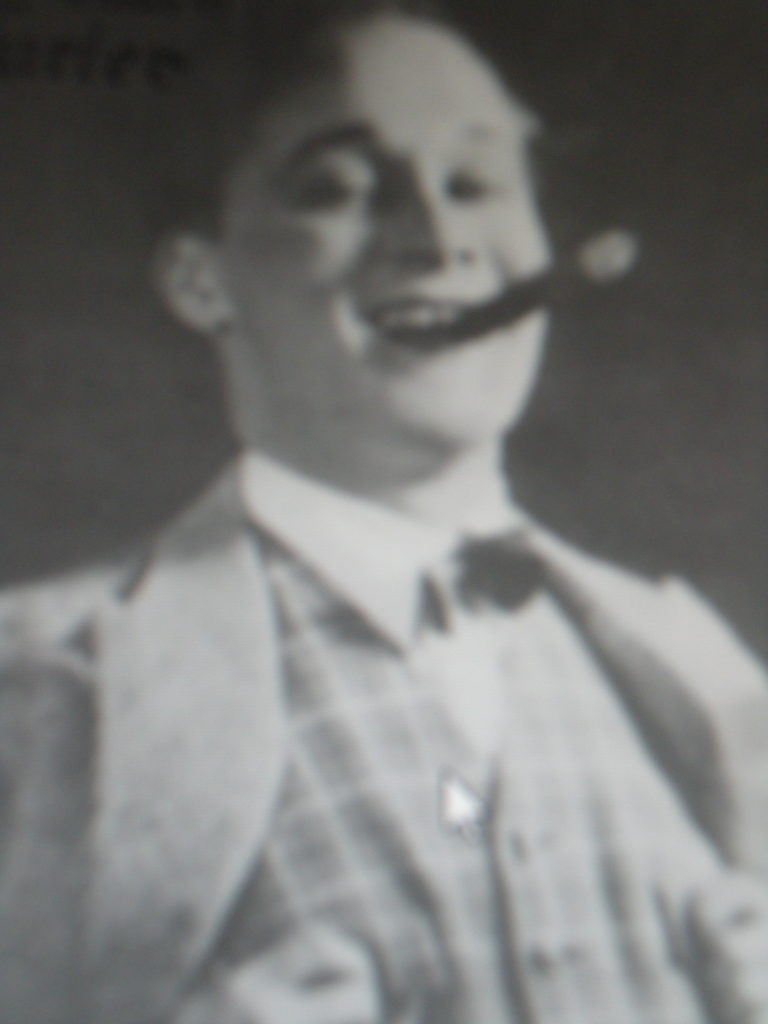UNITED STATES—Both are born in 1892. Ernst is being groomed to enter the family tailoring business. Max is bitten by the stage, though it’s unclear his enthusiasm rubbed off on Ernst, or the love of drama was something both Ernst and Max carried already and bounced off each other. The two had been childhood playmates and then they becaome classmates at Max Reinhardt’s seminar at the elite Deutsches Theater.
Ernst gave himself the lead role in one-act plays and started filming them. Max’s career began in the 1920s with leading roles in Max Reinhardt’s plays and revues.
In 1922, Ernst’s movie “Passion,” about Madame DuBarry was the first German hit in New York. It got Ernst a ticket to Hollywood. Ernst’s famous cinematic “touch,” wherein the viewer puts two and two together and creates the risque together for him or herself (bawdy is in the eyes of the beholder), was spawned as a way to get around American censorship.
At the same time in Europe, Cousin Max goes in to become a cabaret fixture and star in some 40 movies.
Max leave Germany after the Nazis take over. In 1935, homesick for Berlin after two years of touring Amsterdam and Zurich, Max returns to Berlin and the cabaret scene. By now, according to law, both audiences and performers are segregated.
With the help of Ernst, by now a famous Hollywood director, Max goes to the United States in 1937 and is unable to get work. Max decides to go back to Europe.
In 1939 Max goes to Holland and immediately starts performing. The Germans invade Holland in 1940. More trouble for the refugee stars.
At some point Ernst and Max must have had a falling-out. “Is he maybe angry with me?” Ehrlich asks in a March 1941 letter to another cousin. Uncannily, Ernst is now involved in the production of “To Be or Not to Be,” a movie depicting a Polish acting couple (Carole Lombard and Jack Benny) dealing with cuckoldry and how the show goes on despite invading Nazis.
In November 1941, Max writes his other cousin, with mounting desperation:
“We sit here and don’t know what will happen to us. We hoped that on the other side [America] something would happen with our immigration…Something has to be done now, immediately before it is too late! Maybe Ernst is no longer angry and we can ask him for help?” He confesses that without this help the hope that he will ever be seen again shrivels.
We can only speculate about the apparent falling out between the cousins. Perhaps Max pushed Cousin Ernst too hard to use his famous “touch” to obtain immigration papers. Perhaps Ernst feared distraction or freeloading: then as now relatives can be an armful in a famously laid-back city that is anything but laid-back.
Finally, Max is rounded up with other Amsterdam Jews and taken to Westerbork, a Nazi camp deep in Dutch countryside.
There, the untimaginable happens: for 22 months, Max writes for, conducts and directs the Westerbork Theater Group, an ensemble made up of some of Europe’s most renowned performers, who gave new meaning to funny or die.
The camp commandant is starstruck. He suddenly had a Hollywood cast at his disposal. The commandant keeps the names of of his personal theater company off the lists of inmates heading to Auschwitz so he could keep entertaining other SS officers.
The lives of the people in that crew depend on their ability to put on a good show. The troupe is able to maintain a bit of humanity for themselves and their audience.
In late 1944, Max senses that the end is near. He hands an envelope containing his final works to one of Westerbork’s to one of the camp’s rare visitors, an 18 year old, Jaap Cantor, whose mother was once a leading light of the Amsterdam stage, now an inmate at the camp.
Ehrlich has been right. The end comes within months.
“I urgently request a happy end,” is one of the last things Max says on stage. Eyewitnesses recount that, after reaching Auschwitz, he is recognized by a Hauptsturmführer. Max is singled out for extra torture: brought before a group of SS officers holding their loaded guns aimed at him, he is ordered to tell jokes. October 1944 Max says goodbye to this veil of tears.
Ernst’s last picture is “Heaven Can Wait” (1943). It waits a few more years. Then in 1947 Ernst dies. A bar is named after him in West Hollywood in 2009. In 2018, Israel debuts Max’s lots last songs reconstructed miraculously from the staging notes saved by Jaap Canter, and the a capella singing of the revue’s last surviving participant. Indeed, more often than not, there seems to be an angel, helped by human hands, that carefully watches over mislaid art.




